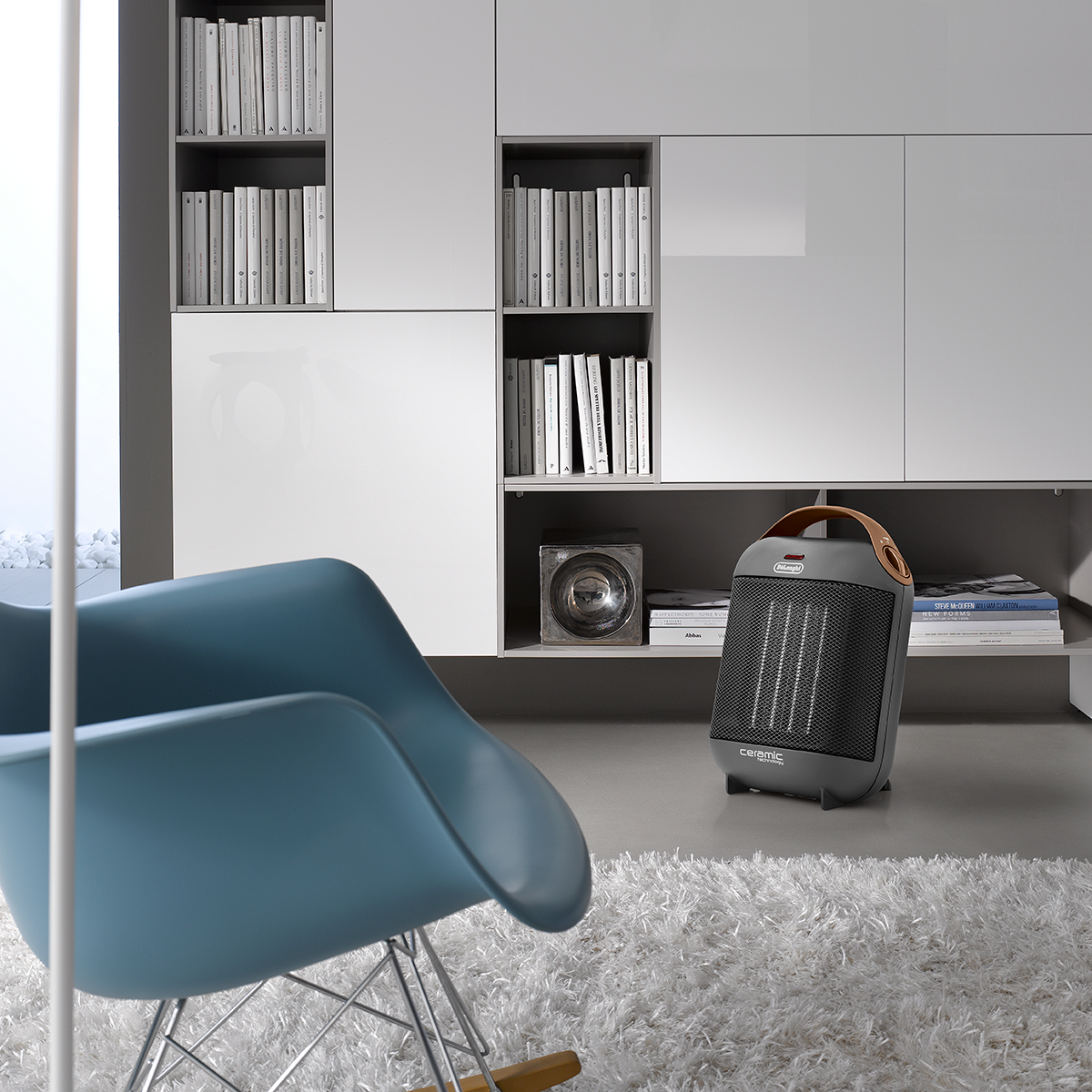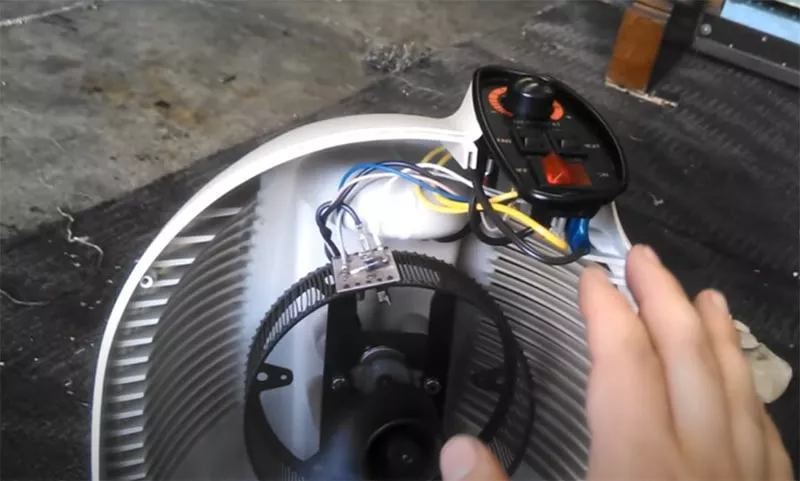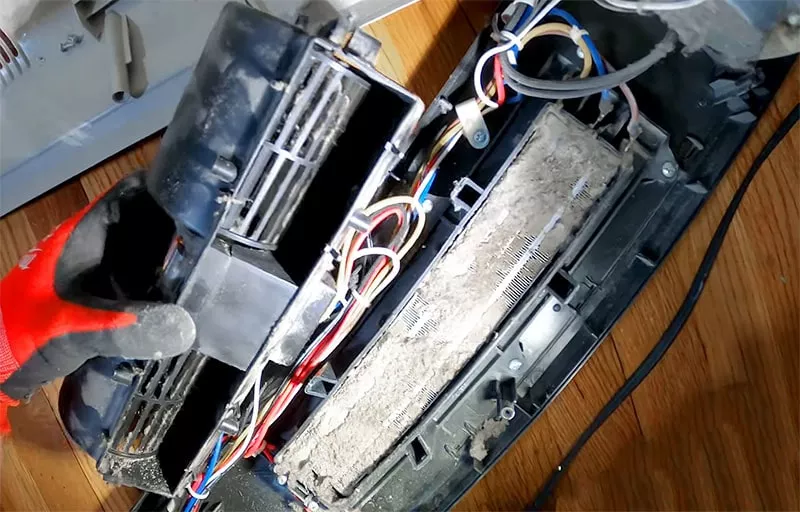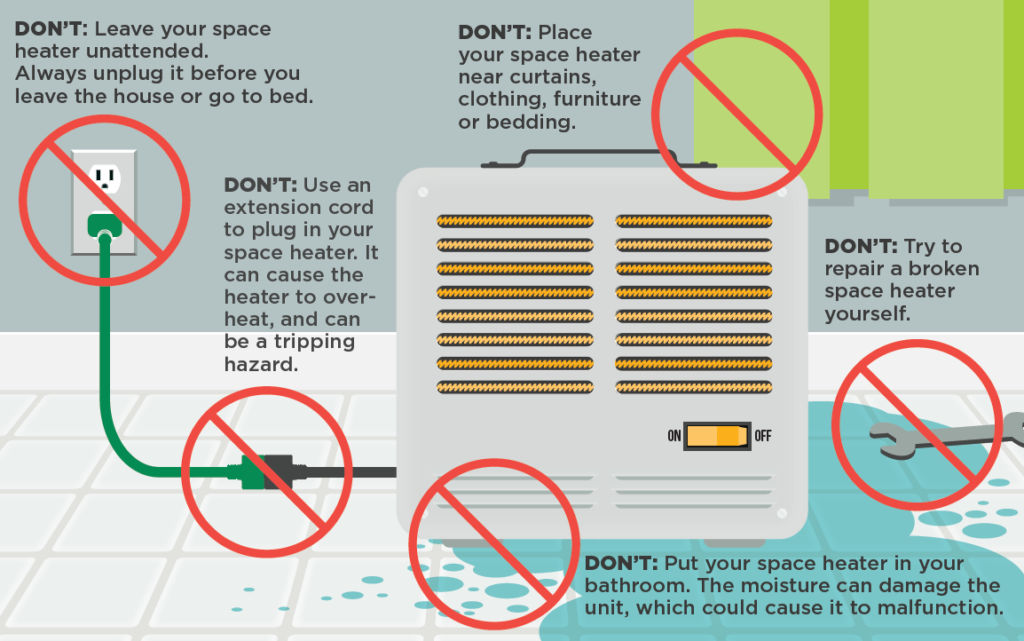Space Heater Tip Over Switch Broken

Space heaters are a common sight in many homes and workplaces, especially during colder months. They provide supplemental heating and can be a cost-effective solution for warming specific areas. However, their safety features are paramount, and one of the most critical is the tip-over switch. When this switch is broken, the heater poses a significant fire hazard. This article will delve into the importance of the tip-over switch, troubleshooting, potential solutions, and the broader implications for HVAC professionals.
The Vital Role of the Tip-Over Switch
The tip-over switch is a safety mechanism designed to automatically shut off a space heater if it's accidentally knocked over. This simple device prevents the heating element from continuing to operate while in contact with flammable materials like carpets, curtains, or furniture. Without a functioning tip-over switch, a fallen space heater can quickly ignite a fire, leading to property damage, injuries, and even fatalities.
According to the National Fire Protection Association (NFPA), space heaters are a leading cause of home heating fires. A working tip-over switch significantly mitigates this risk, making it an indispensable safety feature. Ensuring the proper functioning of this switch should be a priority for anyone using a space heater.
Troubleshooting a Broken Tip-Over Switch
If you suspect that your space heater's tip-over switch is broken, there are several steps you can take to diagnose the problem:
Visual Inspection
Begin by visually inspecting the heater. Look for any signs of physical damage to the switch itself or the surrounding housing. Check if the switch appears to be stuck or misaligned. Sometimes, debris or dust can interfere with its operation. A careful visual assessment can often reveal obvious issues.
Testing the Switch
Most tip-over switches are mechanical devices. Gently tilt the heater to simulate a tip-over. You should hear a distinct click as the switch activates and shuts off the heater. If there's no click or the heater continues to operate, the switch is likely faulty.
For more advanced troubleshooting, you can use a multimeter to test the continuity of the switch. With the heater unplugged, set the multimeter to the continuity setting. With the heater upright and switch engaged, the multimeter should show continuity (a closed circuit). When the heater is tilted, simulating a tip-over, the continuity should break (an open circuit). If the multimeter shows no change in continuity, the switch is definitely defective.
Checking the Wiring
Inspect the wiring connected to the tip-over switch. Look for any loose connections, frayed wires, or signs of corrosion. A loose or damaged wire can prevent the switch from functioning correctly. Ensure all connections are secure and in good condition.
Repair or Replace?
Once you've confirmed that the tip-over switch is broken, you'll need to decide whether to repair or replace the heater.
Repairing the Switch
In some cases, it might be possible to repair the switch. If the problem is a loose connection or a minor misalignment, you might be able to fix it yourself. However, if the switch is internally damaged, replacement is usually the best option. Attempting to repair a complex electrical component without proper training can be dangerous.
Replacing the Heater
If the tip-over switch is beyond repair or if you're not comfortable working on electrical appliances, replacing the heater is the safest course of action. When purchasing a new space heater, look for models with advanced safety features, such as overheat protection and automatic shut-off timers, in addition to a reliable tip-over switch.
Consider the cost of the replacement heater versus the potential risks of a faulty switch. A new heater with updated safety features provides peace of mind and reduces the risk of fire.
The Role of HVAC Professionals
While space heaters aren't typically part of standard HVAC systems, HVAC professionals often encounter them during home inspections, energy audits, and consultations. Understanding the safety features of these devices is essential for providing comprehensive advice to clients.
Educating Clients
HVAC technicians can play a crucial role in educating clients about the safe use of space heaters. This includes emphasizing the importance of a functioning tip-over switch, proper placement of the heater away from flammable materials, and regular maintenance. Providing this information helps prevent accidents and promotes a safer home environment.
Home Inspections and Energy Audits
During home inspections and energy audits, HVAC professionals should check the condition of any space heaters present. If a heater appears to be damaged or lacks essential safety features, it should be brought to the homeowner's attention. Recommending safer alternatives or suggesting a replacement can prevent potential hazards.
Career Opportunities in HVAC
The HVAC industry is experiencing steady growth, driven by factors such as increasing demand for energy-efficient systems, stricter building codes, and the need for qualified technicians to maintain and repair existing equipment. According to the Bureau of Labor Statistics (BLS), the median annual wage for HVACR mechanics and installers was $51,390 in May 2021. The job outlook is projected to grow 5 percent from 2021 to 2031, about as fast as the average for all occupations.
Certifications and Training
Earning certifications can significantly enhance career prospects in the HVAC industry. Some of the most recognized certifications include:
- NATE (North American Technician Excellence): NATE certification demonstrates a technician's knowledge and skills in specific HVAC areas.
- EPA 608 Certification: This certification is required for technicians who handle refrigerants.
Many vocational schools and community colleges offer HVAC training programs that provide the necessary knowledge and skills to enter the field. Apprenticeships are another excellent way to gain hands-on experience and learn from experienced professionals.
Real-World Career Paths
The HVAC industry offers a variety of career paths, including:
- HVAC Technician: Installing, maintaining, and repairing HVAC systems in residential and commercial buildings.
- HVAC Installer: Focusing on the installation of new HVAC equipment.
- HVAC Service Technician: Specializing in the maintenance and repair of existing systems.
- HVAC Design Engineer: Designing and developing HVAC systems for new construction projects.
Many technicians start as apprentices and work their way up to more specialized roles with experience and further training. Some eventually become business owners, running their own HVAC companies.
Employers and Skilled Workers
For employers in the HVAC industry, hiring skilled and certified workers is crucial for maintaining a high level of service and ensuring customer satisfaction. Investing in employee training and development can lead to improved efficiency, reduced callbacks, and a stronger reputation.
Recruiting and Retaining Talent
Attracting and retaining skilled workers requires competitive salaries, comprehensive benefits packages, and opportunities for professional growth. Employers should also provide a supportive work environment and recognize employees' contributions.
The Importance of Continuous Learning
The HVAC industry is constantly evolving with new technologies and regulations. Employers should encourage their employees to participate in ongoing training and certification programs to stay up-to-date with the latest advancements.
A commitment to continuous learning ensures that technicians have the knowledge and skills to handle complex HVAC systems and provide the best possible service to customers.
Conclusion
The tip-over switch in a space heater is a small but vital component that plays a crucial role in preventing fires. By understanding how this switch works, troubleshooting potential problems, and taking appropriate action, individuals and HVAC professionals can contribute to a safer environment. For those considering a career in HVAC, the industry offers numerous opportunities for skilled and dedicated individuals. By obtaining the necessary certifications, gaining hands-on experience, and committing to continuous learning, HVAC professionals can build successful and rewarding careers.










